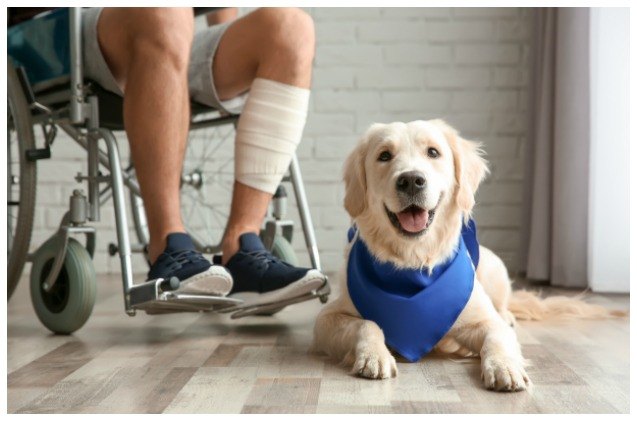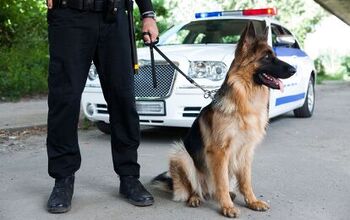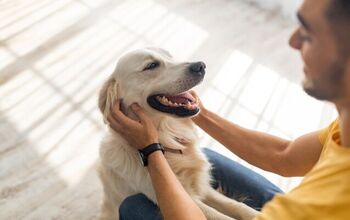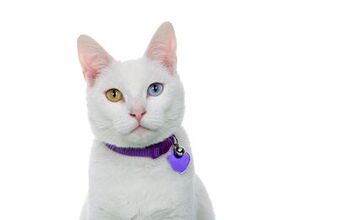Study Suggests Doggy IQ Tests May Predict Successful Working Dogs

It’s a long, hard process for a puppy to become an assistance dog. They are typically trained to help the hearing or visually impaired, or those in wheelchairs. Sometimes they’re detection dogs or rescue pups that jump out of helicopters to do search and rescue.
Related: Adorably Distracted Dog Sworn in as K9 Assistance Pooch [Video]
But only about 50% who start training will successfully complete a program and so those who need assistance dogs often wait for the process to run through.
Evan MacLean is the director of the Arizona Canine Cognition Center at the University of Arizona and theorized that perhaps, we could look at a dog’s cognitive abilities to predict success rates. It would save time and money, and help better identify the most qualified pups.
Typically we look at a dog’s temperament, physical attributes and even breed, but MacLean said that he believes cognitive ability can play a major part in predicting success or failure. To determine if he was right, his team looked at two types of working dogs--assistance dogs who would go on to help people with disabilities and explosive detection dogs bound for the U.S. Navy.
The team looked at the dogs’ performance on 25 different cognitive tasks that included hiding and finding objects and other types of dog play. They discovered that different skill sets were predictive of success in training programs based on the dog–whether it would be an assistance dog or a detection dog.
Assistance dogs need to have strong social skills, and to be able to engage in and even enjoy close eye contact with humans. Detection dogs, however, need to have good short-term memories and be sensitive to human body language like pointing or nodding to be successful.
The study looked at 164 dogs from Canine Companions for Independence and 222 dogs from the U.S. Navy. They tested the assistance dogs when they began a full-time training program at 18-months-old. Using the cognitive testing measures, the research team was able to predict the top 25% of the graduates of the assistance program with an impressive 86% accuracy.
In the Navy dogs, it was harder to measure who was successful and who wasn’t as training is continual and job dependent rather than based on graduation dates, but they looked at the records of the dogs as well as training notes based on exercise performances.
Related: Dog Gets New 3D-Printed Skull After Battling Cancer
MacLean says that dog jobs are diverse like human jobs are, and different jobs require different skill sets. Being able to detect whether or not a dog has those skill sets before training can save time and money.
The team is so motivated by the findings they are now working to see if cognitive testing done as early as 8-weeks-old can be of benefit in predicting who will come out on top.

More by Lori Ennis























